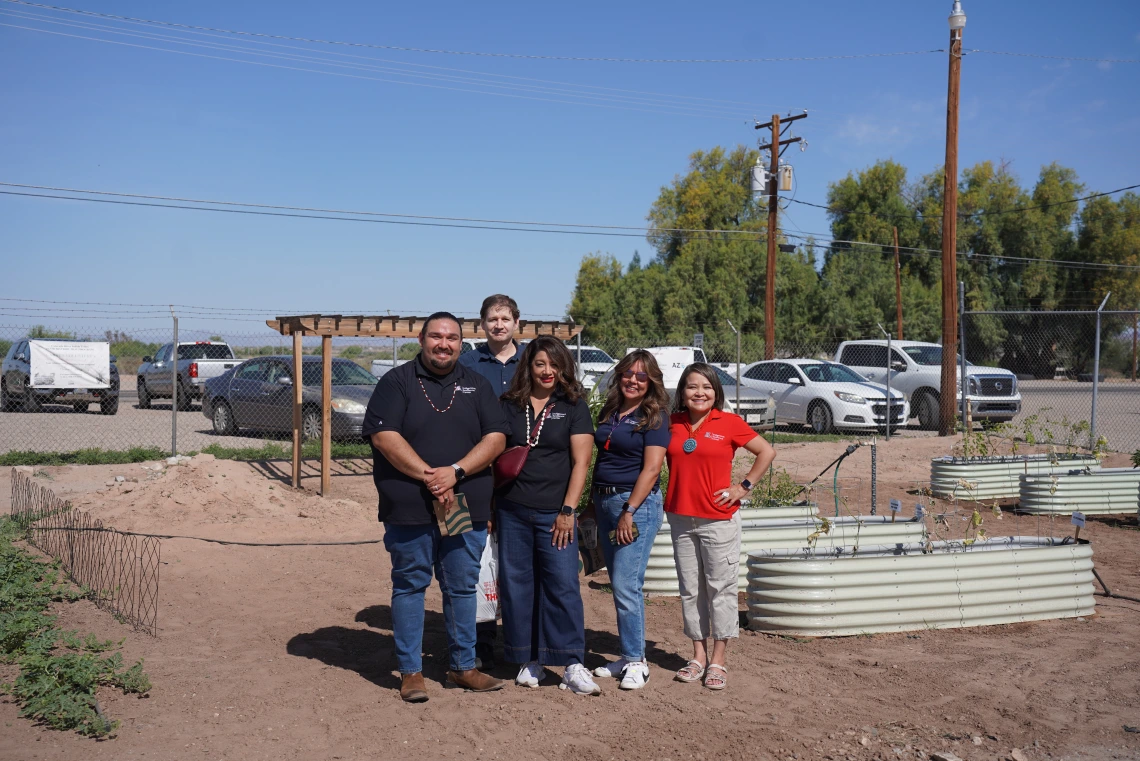Call for Support

Continuing the Work: $1.17 Million in Funding for the Indigenous Resilience Center Terminated
The Indigenous Resilience Center (IRes) at the University of Arizona has announced the termination of over $1.17 million in federal funding from three major grants. These grants were critical to IRes’ mission of empowering Indigenous communities to meet environmental and societal challenges through education, research, and community engagement grounded in Indigenous knowledge systems.
The terminated grants include:
- Native FEWS Alliance (National Science Foundation)
- Western Environmental Justice Center (U.S. Environmental Protection Agency)
- Developing Partnerships Among Tribes, Geoscientists, and the National Park Service to Advance Geoscience Learning at Grand Canyon (National Science Foundation)
These grants supported transformative programs and partnerships, including:
- STAR (Service To All Relations) School (Leupp, AZ)
- A Student’s Journey (TCUs)
- Ilíiaitchik: Indigenous Correspondents Program (ICP) (UA, GWU, Nationwide)
- Puente de Hózhó Elementary School (Navajo Nation)
- Native FEWS Student Ambassadors (Nationwide)
- Inclusion of Indigenous perspectives in public education around the Grand Canyon
- Co-designing food, energy, and water systems, such as off-grid water technologies for tribal members who lack access to drinking water, the development of greenhouse and controlled environmental sensors to grow foods in tribal communities, and renewable energy for tribal members who do not have electricity
- Technical assistance for Native Nations on environmental challenges, including accessing data, applying for grants, and professional development
Each initiative promoted sustainable, community-led solutions rooted in Indigenous values, such as Relationship, Respect, Reciprocity, and Responsibility.
“The termination of these funds is a major setback to IRes, and has deep negative impacts to Indigenous communities across Arizona who are working toward climate resilience, educational equity, and environmental justice,” said Dr. Karletta Chief, Director at IRes.
The grants were terminated on the basis that they no longer aligned with the current Administration’s funding priorities. However, each program involved cutting-edge technology and training and were led by scientific researchers in geology, environmental engineering, electrical engineering, biosystems engineering, education, and social sciences. These grants successfully advanced IRes’ vision of thriving Indigenous communities that are prepared to tackle 21st-century environmental and societal challenges.
About the Grants:
- The Native FEWS Alliance was building pathways for Indigenous students in STEM fields by uniting institutions across multiple states.
- The Western Environmental Justice Center provided Tribal communities with free technical assistance to secure environmental justice funding, area-specific expertise, and leadership development programming across EPA Region 9.
The Grand Canyon Geoscience Learning Project aimed to integrate Indigenous Knowledge into geoscience education and interpretation at Grand Canyon National Park.
Continuing the Work through Community Building, Research, and Teaching
Indigenous communities are on the frontlines of climate change, facing environmental, social, and economic challenges that threaten their ways of life. The Indigenous Resilience Center (IRes) partners with Native American Tribes to advance community-driven solutions that strengthen resilience, protect natural resources, and uphold Indigenous knowledge systems, all while embodying core values of Relationship, Respect, Responsibility, and Reciprocity.
To achieve the goals of our 2025-2030 Strategic Plan, we seek philanthropic partners to join us in our commitment to expanding key initiatives. Investments in community building will support partnerships that empower Tribes to develop and implement locally driven resilience strategies. Funding for research will drive innovative solutions in areas such as regenerative agriculture and food sovereignty, renewable energy, and water security, ensuring Indigenous communities have the tools to adapt to environmental challenges. Support for teaching will enable IRes to develop and offer STEM courses grounded in Indigenous knowledge systems, supporting the next generation of leaders in sustainability and resilience.
Key Investment Areas
Indigenous Knowledge & Policy Support – Developing knowledge-sharing spaces and providing data-informed expertise to support tribal decision-making.
Community-Led Environmental Solutions – Research and programs focused on regenerative agriculture, land use, water and energy systems, and integrating Indigenous knowledges with scientific approaches.
Tribal Grant & Funding Support – Providing grant resources and assistance to tribal community partners in support of funding strategies that strengthen self-determined resource management.
Holistic & Culturally Relevant Education – Expanding Indigenous environmental education in classrooms and communities that integrate traditional knowledge with environmental science.
Indigenous Environmental Leadership Network – Identifying and connecting Indigenous leaders, elders, students, and experts to foster collaboration in environmental spaces with an emphasis on local reservation and urban areas.
Strengthening Tribal and University Partnerships – Advancing discussions on Indigenous perspectives within land-grant institutions and prioritizing tribal community outreach and relationship building.
Mentorship & Networking for Indigenous Scholars & Leaders – Creating intentional spaces for mentorship, peer networking, and leadership development for interns, faculty, students, and community partners.
Support for IRes
As the 2025 University of Arizona Center of Excellence, IRes remains committed to building Indigenous resilience in food, energy, and water systems. However, urgent funding is needed to continue this critical work, retain staff, and maintain long-standing trust-based partnerships with Tribal communities.
Donations can be made here: https://give.uafoundation.org/page.aspx?pid=948&id=e690f824-d65e-490e-9…
Continued investment in IRes will drive cutting-edge research in regenerative agriculture, renewable energy, and water security, while ensuring the next generation of Indigenous leaders can access STEM education centered in Indigenous Knowledge systems.
Contact:
For funding support inquiries, please contact:
Greg Foster
Senior Director of Development
